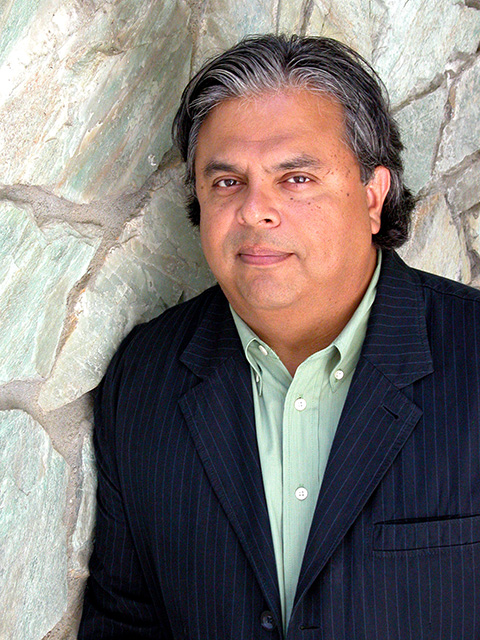 The UTSA Libraries Special Collections has acquired the personal archive of San Antonio native, veteran journalist and editor Oscar Garza. Garza's decades-long career in cultural journalism helped bring visibility to Chicano and Latinx artists during a pivotal time in American media and arts history.
The UTSA Libraries Special Collections has acquired the personal archive of San Antonio native, veteran journalist and editor Oscar Garza. Garza's decades-long career in cultural journalism helped bring visibility to Chicano and Latinx artists during a pivotal time in American media and arts history.
The newly acquired collection includes clippings, research files, exhibition catalogs, and writings from Garza’s time as an arts columnist, reporter and editor at The San Antonio Light. The materials provide valuable insight into the growing influence of Chicano artists in the 1980s and 1990s and the development of arts journalism during a period of cultural and institutional change.
“Oscar Garza’s archive is a significant addition to UTSA’s Special Collections, especially as we continue expanding our holdings that document the history of the Chicano movement in San Antonio and South Texas,” said Amy Rushing, Associate Vice Provost for Special Collections.
Rushing noted that the collection will provide students and researchers direct access to primary materials documenting how Chicano artists and institutions emerged and were covered in the press. “It’s a vital record of cultural journalism, and we’re proud to include it in our archives,” she said.
Garza, who is currently Director of the Specialized Journalism / Arts & Culture graduate program at the University of Southern California, started his reporting career in San Antonio in the 1980s, covering local artists and cultural institutions as the Chicano arts movement gained momentum. His work often highlighted artists and exhibitions that mainstream media had previously ignored. One of the early figures he covered was Rolando Briseño, whose innovative approach to cultural expression caught Garza's attention as a sign of artistic change.
The archive also features an audio recording of Garza’s interview with renowned sculptor Octavio Medellín, conducted shortly before the artist’s death. The interview and Garza’s reports from San Antonio capture an important span of generational Chicano artistic development and public reception.
Garza’s writings also show his changing approach to arts journalism. He aimed to cover Chicano artists not as a separate group but as an important part of the larger cultural conversation — a move that foreshadowed the multiculturalism movement that gained momentum in the 1990s.
“My collection captures a time when the Chicano community in San Antonio was growing more vocal," Garza said. “It served as a model for what would later become the multiculturalism movement.”
The acquisition enhances UTSA Libraries' dedication to preserving Texas and the Southwest's cultural and artistic history. It also provides a valuable resource for students, faculty, and researchers studying the intersections of journalism, identity, and the arts.
For Garza, having the archive housed at UTSA holds personal and professional significance.
“It means a lot to know that my work at The San Antonio Light will be accessible to researchers,” Garza said. “My relationship with newspapers dates back to my childhood on the South Side, when I’d walk next door every afternoon and exchange a nickel for a copy of the Express-News. Something about that experience ingrained the idea of journalism — and gave me an early understanding of the city. It means the world to me that I spent part of my career there and left behind a piece of that legacy.”